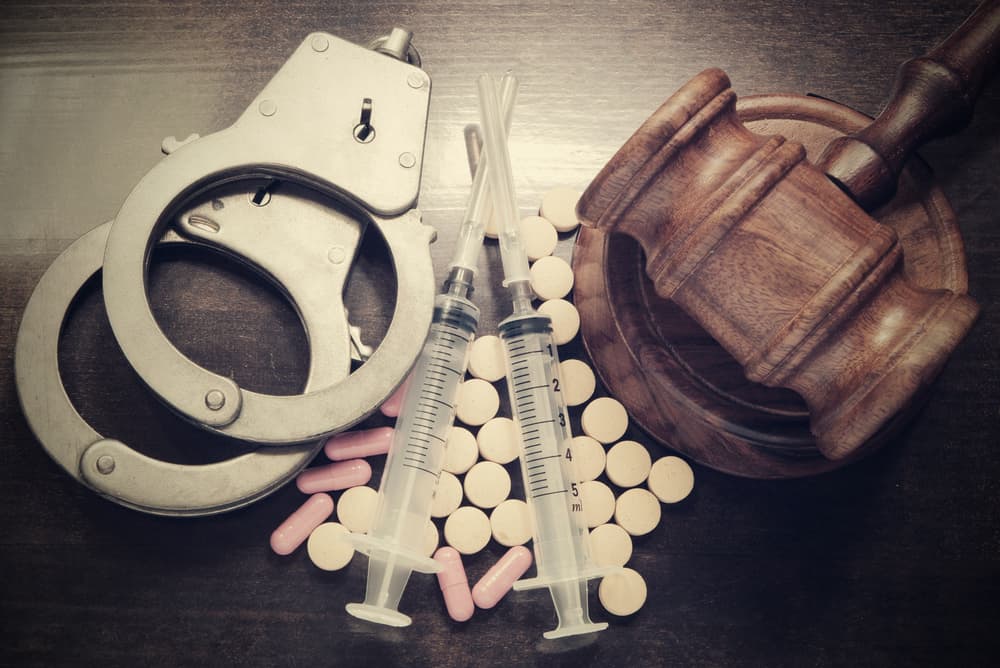
In Texas, a conviction on drug crime charges can carry significant financial penalties and years — or even decades — behind bars. Texas laws for drug possession, manufacture, or delivery are especially harsh. If you are facing charges for a drug crime, you need a drug crime lawyer in Fort Worth to help fight for your rights under the law.
For a free consultation, call the Law Offices of Randall B. Isenberg: 214-696-9253.
What might the state charge me with after a drug arrest?
Chapter 481 of the Texas Health and Safety Code, known as the Texas Controlled Substances Act, establishes the basis of drug crimes, charges, and penalties. This Act contains almost one hundred pages of complex information.
The statutes group drug-related offenses into three basic categories: possession, delivery, and manufacturing.
Drug Possession
Texas drug possession crimes involve knowingly or intentionally having a controlled substance in your possession. This may mean having an illegal substance on your person, such as in a pocket or handbag, or having them in a location that is under your direct control, such as your car or house.
Drug Delivery
Under Texas law, drug delivery crimes include intentionally or knowingly giving, transferring, selling, distributing, or trafficking a controlled substance.
Drug Manufacturing
Texas drug manufacturing laws encompass growing, preparing, or producing a controlled substance. Even buying or possessing the chemical ingredients necessary to produce a controlled substance may qualify as a crime under these statutes.
How does the state determine drug crimes?
The level of offense that the prosecutor may impose for drug crimes involves four key elements:
- The type of drug involved
- The quantity of the drug
- The circumstances of the offense
- Your criminal history
Some circumstances that can enhance the level of your charges include violating these laws in a school zone or drug-free zone, or the presence of a minor child when you commit the crime.
What drugs are illegal in Tarrant County, Texas?
Texas statutes list hundreds of different controlled substances and drugs that are always illegal, or that may be illegal in certain circumstances. Controlled substances are so-named because they present a high risk for abuse or harm and, thus, must be legally controlled.
The laws categorize drugs into four main penalty groups. A partial list of drugs contained in those groups are as follows:
Penalty Group 1: Opiates and opiate derivatives, including methamphetamine, heroin, cocaine, fentanyl, ketamine (Special K), PCP
Penalty Group 1-A: Lysergic Acid Diethylamide (LSD)
Penalty Group 2: Hallucinogens and depressant/stimulant compounds, including ecstasy, MDMA, mescaline (peyote), bath salts, molly, psilocybin (mushrooms), and analog drugs (designer drugs)
Penalty Group 2-A: Synthetic marijuana (e.g., spice, K2, etc.)
Penalty Group 3: Stimulant and depressant drugs and some narcotics, including Ritalin, alprazolam (Xanax), lorazepam, clonazepam, diazepam, hydrocodone, codeine, human growth hormone (HGH) and testosterone
Penalty Group 4: Narcotic compound with nonnarcotic active ingredients, including morphine, buprenorphine, pyrovalerone, and other
Note that marijuana is not contained within any of the above penalty groups, although it is illegal in Texas.

What are the penalties for a Fort Worth drug possession conviction?
The court calculates punishment for a drug possession conviction in Texas based on the penalty group of the drug in question, the quantity of the drug, and any enhancements or extenuating circumstances.
For example, if you possess between four and 200 grams of a substance from Penalty Group 1, the prosecutor will charge you with a second-degree felony. Having less than 28 grams of a Group 3 substance will earn you a Class A misdemeanor charge.
Although a few Texas drug possession charges carry a mandatory minimum jail sentence, most punishments range from six months in jail to 99 years or life. Monetary fines range from $0 to $100,000.
Marijuana possession charges start with a Class B misdemeanor for less than 2 ounces (up to six months in jail and a $2,000 fine) and increase accordingly depending on the quantity in possession.
As quantity is a large factor in penalties, we will see if there is any way to convince the prosecutor to charge you for possessing a smaller amount.

What are the penalties for drug delivery and manufacturing convictions?
Texas drug possession charges are some of the harshest in the United States. When your charges increase for delivery or manufacturing, the potential penalties also increase exponentially.
If you are charged with drug delivery, also commonly known as drug dealing or drug trafficking, the potential penalties depend on the drug and quantity as well as any enhancements.
You will face felony charges regardless of the type of drug or the quantity.
Am I eligible for the Tarrant County First Offender Program?
Tarrant County offers a First Offender Drug Program, designed to help first-time offenders change their ways and avoid harsher penalties. To qualify for this program, you may not have pending charges or a prior conviction of any crime beyond a Class C misdemeanor.
To apply for this program, you must have an attorney to submit your application within 90 days of the filing of your charges. If the Tarrant County District Attorney (DA) approves the application, you must enter a guilty plea in court. If you complete the program in the allowed timeframe, the DA will dismiss your charges.
If you do not complete the program, your guilty plea will stand on the record and the court will sentence you accordingly. Randall will let you know if you qualify for the first offender program.
What are your other options for drug crime charges?
If you are facing drug crime charges in Tarrant County, your other options are limited.
You could plead guilty and accept the court’s sentence for your crimes. Or, with the help of a Fort Worth drug crime lawyer, you could explore the possibility of a plea bargain, which would allow you to plead guilty to a lesser offense. You could also opt to enter a not guilty plea and attempt to beat the charges in court.
Or, if your drug possession lawyer can find flaws in the prosecutor’s case, he may be able to convince a judge or the DA to drop the charges completely.
How can a Fort Worth drug crime lawyer help me?
At the Law Offices of Randall B. Isenberg, we have decades of experience in the criminal justice system. Our founder, Randall Isenberg, was a senior felony prosecutor and a state district judge for 30 years.
We know how the other side thinks, which gives us a distinct advantage. We will look into your case, determine if the officers in your arrest followed protocol, or see if there are any other options to get the prosecution to throw out the case or charge you with a lesser crime.
The potential penalties for a Texas drug crime conviction are significant. The risk of confronting these charges on your own presents a potentially life-altering risk. In Fort Worth, the Law Offices of Randall B. Isenberg offers free case reviews for drug possession, delivery, and manufacturing charges.
Call us today to schedule an appointment with a drug crime lawyer in Fort Worth: 214-696-9253.










